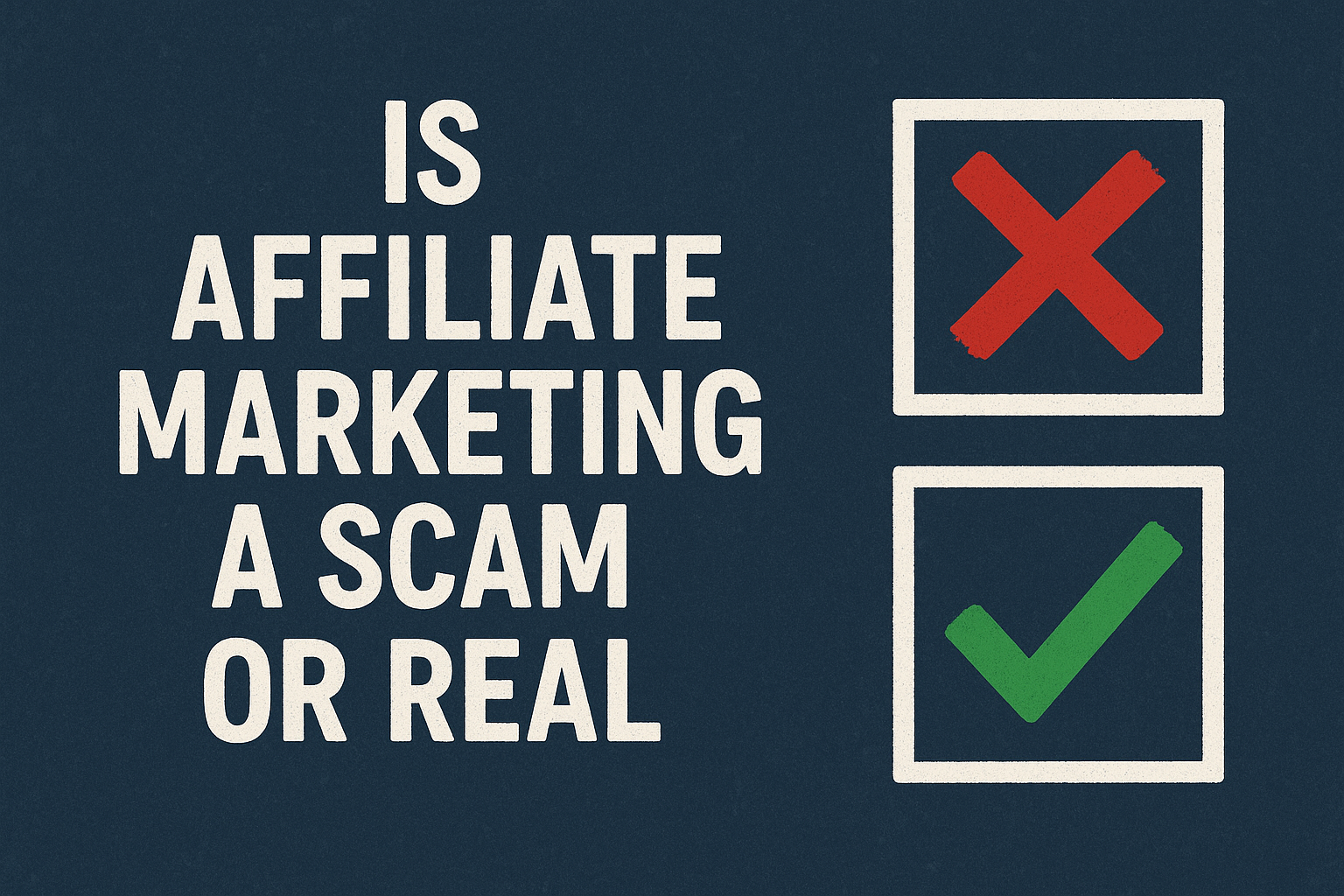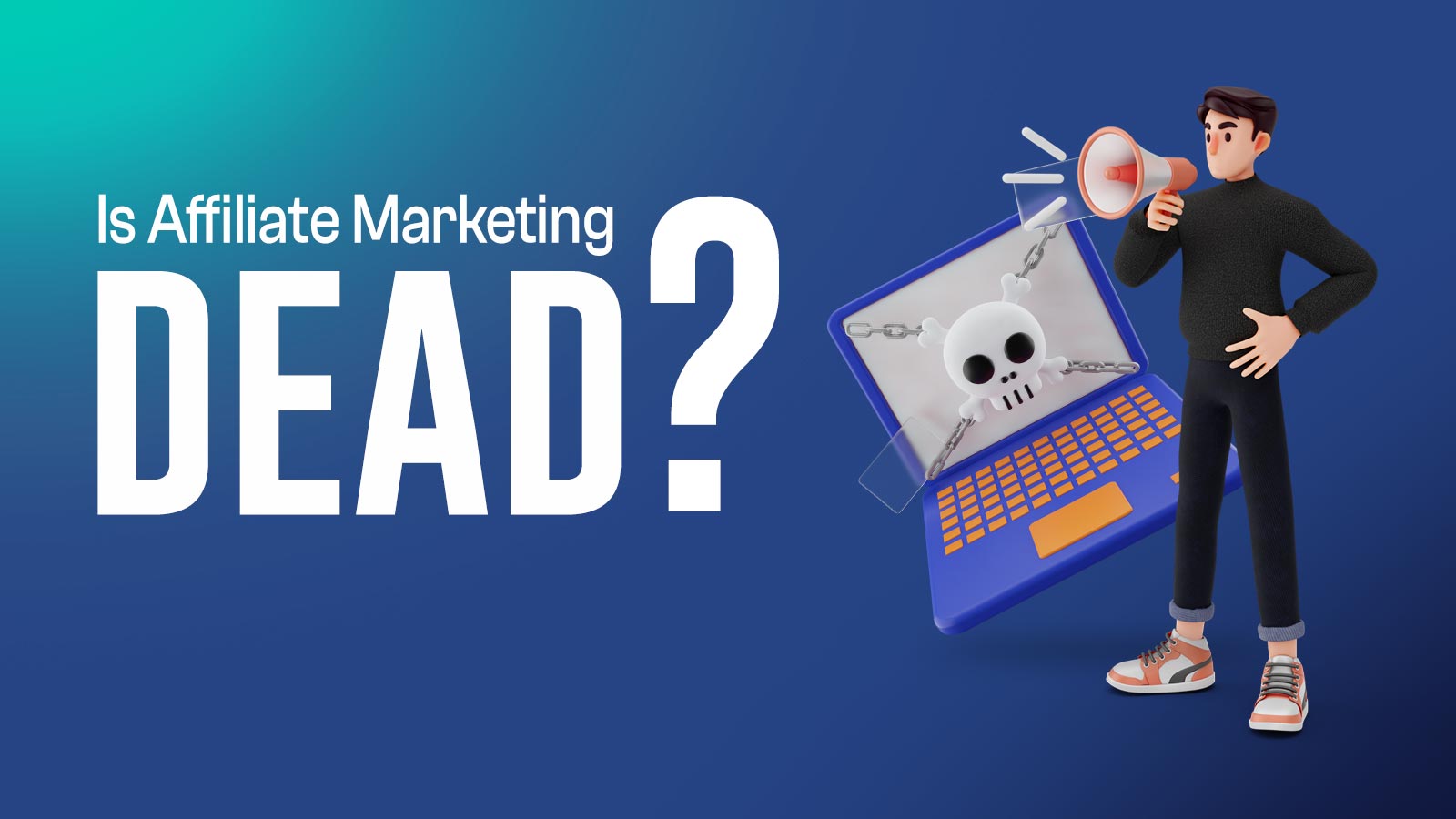Online Income Without Investment: Start Affiliate Marketing in 2025
By Admin

Online income without investment is a reality with affiliate marketing. Discover how to build a passive income stream from home in 2025, learn the basics, understand how it works, and get expert success tips.
Achieving online income without investment is a dream for many, especially for young entrepreneurs and individuals aged 18-35 looking to earn money from home. While numerous online ventures promise quick riches, few offer the genuine potential for passive income and low startup costs as affiliate marketing. This powerful digital strategy allows you to earn commissions by promoting products or services without needing to create your own. It's a highly attractive model for those seeking financial independence and flexibility. In this extensive guide, you will learn how to start an affiliate marketing business, delve into Affiliate Marketing: How It Works, get a clear understanding of what is affiliate marketing for beginners, explore the exciting future of affiliate marketing, address the crucial question of is affiliate marketing a scam or real, gain valuable affiliate marketing success tips, identify what is the best platform for affiliate marketing, discover top niches for affiliate marketing, and confront the notion of is affiliate marketing dead. By the end, you'll have a comprehensive roadmap to building a thriving affiliate marketing venture.
Affiliate Marketing How It Works?
At its core, Affiliate Marketing: How It Works is a performance-based marketing strategy where a business compensates one or more affiliates for each visitor or customer brought by the affiliate's own marketing efforts. Think of it as a digital sales force working on commission. You, as the affiliate, find products or services you genuinely believe in. You then promote them to your audience, often through a unique affiliate link. When someone clicks your link and makes a purchase, signs up for a service, or completes a desired action, you earn a commission.
This model is a win-win: businesses get increased sales and exposure without upfront advertising costs, and affiliates can earn money by leveraging their influence and content without needing to manage inventory, shipping, or customer service. The simplicity of this setup makes it a highly appealing path for generating online income without investment.

What is Affiliate Marketing for Beginners?
For newcomers, what is affiliate marketing for beginners often revolves around understanding these key components:
-
The Merchant (or Advertiser): This is the company that creates the product or service. Examples include Amazon, Shopify, or a software company.
-
The Affiliate (or Publisher): This is you! You promote the merchant's products. You could be a blogger, a social media influencer, an email marketer, or a YouTube creator.
-
The Consumer: This is the audience you're targeting. They are the ones who ultimately purchase the product or service through your affiliate link.
-
The Affiliate Network: Often, a third-party platform acts as an intermediary, connecting merchants with affiliates and handling tracking, reporting, and payments. Popular networks include ShareASale, CJ Affiliate, and Rakuten Marketing.
Your role as an affiliate is to bridge the gap between the merchant's product and potential customers. You act as a trusted recommender, guiding your audience towards solutions that fit their needs. The beauty for beginners is that you don't need to be an expert in sales; you just need to be good at connecting with people and providing value.
How to Start an Affiliate Marketing Business: A Step-by-Step Guide
Embarking on how to start an affiliate marketing business might seem daunting, but by breaking it down into manageable steps, you can build a solid foundation for generating online income without investment.
-
Choose Your Niche: This is arguably the most crucial first step. Your niche should be something you're genuinely interested in, knowledgeable about, and that has a viable audience. Consider your hobbies, passions, or areas of expertise. Research potential niches for profitability and audience size.
-
Research Affiliate Programs: Once you have a niche, look for affiliate programs related to it. You can find these directly on company websites (e.g., Amazon Associates, Shopify Affiliate Program) or through affiliate networks. Pay attention to commission rates, cookie duration (how long a click is tracked), and payment terms.
-
Select a Promotion Channel: Decide how you will reach your audience. Common channels include:
-
Blogging/Website: A content-rich blog allows you to write detailed reviews, comparisons, and guides. This is excellent for organic traffic.
-
YouTube Channel: Video reviews, tutorials, and unboxings are highly effective.
-
Social Media: Platforms like Instagram, TikTok, or Facebook can be powerful for visual promotions and community building.
-
Email Marketing: Building an email list allows for direct communication and targeted promotions.
-
Podcasting: Audio content can build a loyal audience interested in specific topics.
-
Create High-Quality Content: This is where you provide value. Your content should be informative, engaging, and genuinely helpful. Don't just push products; educate your audience, solve their problems, and offer solutions.
-
Write in-depth reviews of products.
-
Create comparison articles pitting products against each other.
-
Develop how-to guides that integrate product recommendations.
-
Produce problem/solution content where the affiliate product is the solution.
-
Drive Traffic to Your Content: Even the best content needs an audience.
-
SEO (Search Engine Optimization): Optimize your content to rank high on Google for relevant keywords. This provides consistent organic traffic.
-
Social Media Marketing: Share your content on relevant platforms, engage with your audience, and grow your following.
-
Paid Advertising: Consider running ads on Google or social media to get immediate traffic, but be mindful of your budget.
-
Email List Building: Offer valuable incentives (e-books, checklists) to encourage sign-ups.
-
Analyze and Optimize: Use analytics tools to track your clicks, conversions, and earnings. Identify what's working and what isn't. Experiment with different content types, promotion strategies, and product placements to maximize your results. Continuously refine your approach based on data.
By following these steps, you can systematically build an affiliate marketing business that generates significant online income without investment over time.

The Future of Affiliate Marketing: What to Expect
The digital landscape is constantly evolving, and the future of affiliate marketing is no exception. Far from being a fleeting trend, affiliate marketing is poised for continued growth and innovation. Several key trends will shape its trajectory:
-
Increased Focus on Transparency and Authenticity: Consumers are savvier than ever. Future success will hinge on genuine recommendations and transparent disclosures of affiliate relationships. Building trust will be paramount.
-
Rise of Influencer Marketing Integration: The lines between traditional affiliate marketing and influencer marketing will blur further. Brands will seek out affiliates with genuine influence and engaged communities.
-
AI and Automation: AI will play an increasingly significant role in optimizing campaigns, identifying profitable niches, personalizing content, and automating tedious tasks, making it easier to generate online income without investment.
-
Video Content Dominance: Platforms like YouTube and TikTok will continue to be powerful drivers of affiliate sales. High-quality, engaging video reviews and tutorials will be crucial.
-
Niche Specialization: As the market matures, hyper-niche targeting will become even more effective. Focusing on a very specific audience with tailored solutions will yield better results.
-
Ethical AI and Consumer Trust: The ethical deployment of AI will be critical. Affiliates using AI tools must ensure their content remains human-like and trustworthy to maintain audience confidence.
-
Enhanced Tracking and Attribution: Advancements in tracking technology will provide more precise insights into conversion paths, allowing affiliates and merchants to optimize their strategies further.
The core principle of connecting consumers with valuable products will remain, but the methods and technologies employed will become more sophisticated and user-centric.

Is Affiliate Marketing a Scam or Real? Addressing Common Concerns
A legitimate concern for many seeking online income without investment is whether is affiliate marketing a scam or real. The good news is that affiliate marketing is absolutely real and a legitimate business model practiced by countless individuals and companies worldwide. It's a multi-billion dollar industry that continues to grow.
However, like any profitable industry, it has attracted its share of misleading claims and bad actors. Here's why some people might perceive it negatively:
-
Misleading "Get Rich Quick" Schemes: Some unscrupulous individuals promote affiliate marketing as an effortless path to instant wealth, often selling overpriced courses or software that deliver little value. True affiliate marketing requires consistent effort and strategic planning.
-
Lack of Transparency: Some affiliates fail to disclose their affiliate relationships, which erodes trust and can lead to FTC violations in some regions. Ethical affiliates always clearly state when they are using affiliate links.
-
Poor Quality Products: Promoting low-quality products solely for commission can lead to negative audience experiences and damage your reputation. Success comes from genuinely recommending valuable products.
How to avoid scams and ensure you're engaging in legitimate affiliate marketing:
-
Research Thoroughly: Before joining any program or purchasing a course, do your due diligence. Check reviews, look for testimonials, and verify the credibility of the merchant or educator.
-
Focus on Value: Your primary goal should be to provide value to your audience. Recommend products that solve their problems or genuinely improve their lives.
-
Be Transparent: Always disclose your affiliate links. This builds trust with your audience and complies with regulations.
-
Avoid Unrealistic Promises: If something sounds too good to be true, it probably is. Sustainable online income without investment through affiliate marketing takes time and effort.
By adhering to ethical practices and focusing on providing genuine value, you can confidently build a real and profitable affiliate marketing business.
Affiliate Marketing Success Tips: Maximizing Your Earnings
While affiliate marketing offers the potential for online income without investment, achieving substantial success requires strategic effort. Here are crucial affiliate marketing success tips to help you maximize your earnings:
-
Niche Down Aggressively: Don't try to appeal to everyone. The more specific your niche, the easier it is to target your audience, build authority, and convert sales. For example, instead of "fitness," consider "fitness for busy moms" or "bodyweight fitness for travelers."
-
Build an Audience First: Before pushing products, focus on creating valuable content that attracts and engages your target audience. Build trust and authority within your niche. People buy from those they trust.
-
Prioritize Evergreen Content: Create content that remains relevant over time. "How-to" guides, ultimate reviews, and foundational articles will continue to drive traffic and sales for months or even years.
-
Diversify Your Traffic Sources: Don't put all your eggs in one basket. Relying solely on SEO, for instance, leaves you vulnerable to algorithm changes. Explore social media, email marketing, and even paid ads once you understand your conversions.
-
Promote Products You Actually Use (or Have Researched Thoroughly): Authenticity is key. Your audience will sense if you're just promoting something for a commission. Genuine recommendations resonate far more powerfully.
-
Test and Track Everything: Use analytics to understand which content, products, and promotion methods are performing best. A/B test headlines, calls to action, and product placements. Data-driven decisions lead to better results.
-
Master SEO Fundamentals: For long-term passive income, ranking high on search engines is invaluable. Learn keyword research, on-page optimization, and link building. This provides consistent, free traffic.
-
Build an Email List: An email list is one of your most valuable assets. It gives you direct access to your audience, allowing for highly targeted promotions and fostering stronger relationships.
-
Focus on High-Ticket and Recurring Commissions: While many small commissions can add up, prioritizing products with higher payouts or recurring commissions (e.g., software subscriptions) can significantly boost your income for fewer sales.
-
Be Patient and Consistent: Affiliate marketing is not a get-rich-quick scheme. It requires consistent effort over time to build authority, audience, and revenue. Don't get discouraged by initial slow progress.
By implementing these strategies, you'll be well on your way to building a successful and sustainable affiliate marketing business that provides significant online income without investment.

What is the Best Platform for Affiliate Marketing?
Determining what is the best platform for affiliate marketing isn't a one-size-fits-all answer, as the ideal choice depends on your niche, audience, and content style. However, several platforms consistently prove effective for generating online income without investment.
-
Your Own Website/Blog: This is often considered the gold standard. You have full control over your content, design, and monetization strategies. It allows for in-depth reviews, comparisons, and SEO optimization, building long-term authority and traffic. Platforms like WordPress are popular choices.
-
YouTube: As video content continues to dominate, a YouTube channel is an excellent platform, especially for product reviews, tutorials, and unboxings. Visual demonstrations can be highly persuasive.
-
Social Media Platforms (Instagram, TikTok, Facebook, Pinterest): These are powerful for building communities and driving traffic, especially for visually appealing products. Short-form video on TikTok or Reels, and curated images on Instagram or Pinterest, can be very effective. However, direct linking can be limited, often requiring a "link in bio" or a dedicated landing page.
-
Email Marketing: While not a standalone platform for content creation, building an email list allows you to directly communicate with your most engaged audience. You can send targeted promotions, exclusive deals, and valuable content that includes affiliate links.
-
Podcast: For those comfortable with audio, a podcast can build a highly loyal and engaged audience. You can weave affiliate recommendations naturally into your episodes, providing value and then directing listeners to specific links.
Choosing the right platform often involves:
-
Audience Preference: Where does your target audience spend their time online?
-
Content Type: What kind of content are you best at creating (written, video, audio)?
-
Monetization Strategy: How do you plan to incorporate affiliate links naturally?
Many successful affiliates utilize a combination of platforms, such as a blog supported by social media promotion and an email list.
Top Niches for Affiliate Marketing: Where to Find Opportunities
Identifying top niches for affiliate marketing is crucial for maximizing your chances of generating substantial online income without investment. A good niche combines profitability, audience interest, and your own passion or expertise. Here are some consistently performing niches:
-
Health and Wellness: This is a vast and evergreen niche. Sub-niches include:
-
Weight Loss: Diets, supplements, exercise programs.
-
Fitness: Home gym equipment, workout apps, athletic wear.
-
Mental Wellness: Meditation apps, therapy services, stress relief products.
-
Dietary Supplements: Vitamins, protein powders, superfoods.
-
Personal Finance: People are always looking to manage their money better. Sub-niches:
-
Investing: Brokerage accounts, investment platforms, financial education.
-
Budgeting Software: Apps and tools for tracking expenses.
-
Credit Cards/Loans: Financial product comparisons.
-
Making Money Online: (Like this blog post!) Courses, tools, passive income strategies.
-
Technology and Software: High-commission potential due to recurring subscriptions. Sub-niches:
-
SaaS (Software as a Service): Project management tools, CRM software, email marketing platforms.
-
Consumer Electronics: Laptops, smartphones, smart home devices.
-
Cybersecurity: VPNs, antivirus software.
-
Home and Garden: A broad category with diverse product opportunities. Sub-niches:
-
Home Decor: Furniture, lighting, unique decor items.
-
Gardening Supplies: Tools, seeds, plant care products.
-
Smart Home Technology: Smart thermostats, security cameras.
-
Dating and Relationships: An evergreen niche addressing fundamental human needs. Sub-niches:
-
Dating Apps/Services: Online dating platforms.
-
Relationship Advice: Courses, books, coaching programs.
-
Hobbies and Interests: Passion-driven niches often have dedicated audiences. Examples:
-
Gaming: Consoles, games, accessories.
-
Photography: Cameras, lenses, editing software, courses.
-
Pet Care: Pet food, toys, training resources.
-
Travel: Booking sites, travel gear, insurance.
When selecting a niche, consider:
-
Audience Size and Engagement: Is there a large enough group of people interested? Are they actively seeking solutions?
-
Competition: Can you realistically carve out a space, or is it oversaturated?
-
Product Availability: Are there good affiliate programs and high-quality products within the niche?
-
Your Passion/Knowledge: Promoting something you genuinely care about will make the process more enjoyable and authentic.

Is Affiliate Marketing Dead? Debunking the Myth
The question is affiliate marketing dead often arises amidst changes in algorithms, increased competition, or shifts in consumer behavior. The definitive answer is no, affiliate marketing is not dead; it's constantly evolving. Claims of its demise are typically made by those who:
-
Failed to adapt to changes: The strategies that worked five years ago might not be as effective today. Successful affiliates embrace new technologies and trends.
-
Entered an oversaturated market without a unique angle: Simply promoting popular products without adding unique value will indeed be challenging.
-
Approached it as a "get rich quick" scheme: Affiliate marketing is a legitimate business that requires sustained effort, learning, and adaptation.
Why affiliate marketing remains vibrant and a viable path for online income without investment:
-
Consumer Trust in Recommendations: People increasingly rely on authentic reviews and recommendations from trusted sources before making purchasing decisions. Affiliates, when transparent and genuine, fill this role.
-
Cost-Effectiveness for Businesses: Companies continue to see affiliate marketing as a low-risk, high-reward advertising model. They only pay when a sale is made, unlike traditional advertising which has upfront costs.
-
Growth of E-commerce: The continuous expansion of online shopping creates an ever-larger pool of products and services to promote.
-
Diversification of Content Platforms: New platforms (TikTok, podcasts, newsletters) continually emerge, offering fresh avenues for affiliates to reach audiences.
-
Technological Advancements: AI tools, better analytics, and improved tracking make affiliate marketing more efficient and effective for both affiliates and merchants.
While the tactics may shift, the fundamental principle of connecting consumers with valuable products for a commission remains a powerful and enduring business model. To thrive, affiliates must stay informed, be adaptable, and prioritize providing genuine value.
Long-Term Strategy for Passive Income
Building a truly passive income stream with affiliate marketing involves a long-term strategic approach. It's not about immediate large earnings, but about creating assets that continue to generate income with minimal ongoing effort.
-
Focus on SEO: Content optimized for search engines (blogs, YouTube videos) can bring in free, consistent traffic for years, even after you stop actively promoting it. This is the cornerstone of passive affiliate income.
-
Build an Email List: An email list is an audience you "own," independent of social media algorithms. Automated email sequences with affiliate promotions can generate sales while you sleep.
-
Create Evergreen Content: Content that stays relevant for a long time (e.g., "Best Beginner DSLR Cameras," "How to Start a Budget") will continue to attract new visitors and conversions.
-
Promote Recurring Commission Products: Software subscriptions or services that charge a monthly fee can provide a consistent income stream from a single conversion.
-
Automate Processes: As your business grows, look for opportunities to automate tasks like social media posting, email sequences, or even content creation (with AI assistance, but always human-edited).
By focusing on these long-term strategies, you can build a robust affiliate marketing business that genuinely delivers online income without investment and provides financial freedom.
FAQ Section
Q1: Can I really start affiliate marketing with no money? A1: Yes, you can start affiliate marketing with very little to no upfront financial investment by leveraging free platforms like social media, free blogging sites, or simply starting with free content creation tools. Your main investment will be your time and effort.
Q2: How quickly can I earn money with affiliate marketing? A2: Earning money with affiliate marketing varies widely; some might see commissions in weeks, while others take months. It depends on your niche, content quality, traffic generation, and consistent effort. It's not a get-rich-quick scheme, but a sustainable business model.
Q3: Do I need a website to do affiliate marketing? A3: While a website (or blog) is highly recommended for long-term passive income and SEO benefits, it's not strictly necessary to start. You can begin on social media, YouTube, or with email marketing, though a central hub often provides more control and scalability.
Q4: What's the biggest mistake beginners make in affiliate marketing? A4: A common mistake for beginners is focusing solely on selling products rather than providing genuine value to their audience. Lack of consistency, chasing trends instead of building authority, and giving up too soon are also frequent pitfalls.
Q5: How do I find good products to promote as an affiliate? A5: Look for products you genuinely use or believe in, and then check their website for an affiliate program. Alternatively, explore major affiliate networks like Amazon Associates, ShareASale, CJ Affiliate, or specialized networks in your niche.
Q6: What is a cookie duration in affiliate marketing? A6: Cookie duration refers to the length of time an affiliate cookie remains active on a user's browser after they click your link. If a purchase is made within this timeframe, you get credit. Longer cookie durations generally mean more potential for commissions.
Q7: Is affiliate marketing a good source of passive income for young people (18-35)? A7: Absolutely! Affiliate marketing is an excellent source of online income without investment for this age group, offering flexibility, the ability to work from home, and the chance to build a sustainable business around their interests and digital skills.








